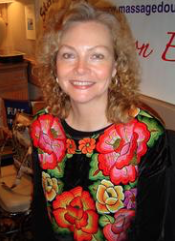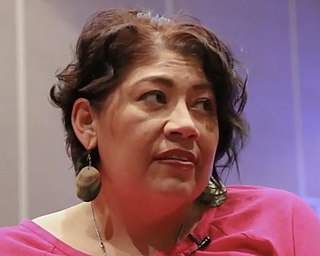Speculative and science fiction writers have often addressed the social,political,technological,and biological consequences of pregnancy and reproduction through the exploration of possible futures or alternative realities.
Political anthropology is the comparative study of politics in a broad range of historical,social,and cultural settings.
Feminist theory is the extension of feminism into theoretical,fictional,or philosophical discourse. It aims to understand the nature of gender inequality. It examines women's and men's social roles,experiences,interests,chores,and feminist politics in a variety of fields,such as anthropology and sociology,communication,media studies,psychoanalysis,political theory,home economics,literature,education,and philosophy.
Digital anthropology is the anthropological study of the relationship between humans and digital-era technology. The field is new,and thus has a variety of names with a variety of emphases. These include techno-anthropology,digital ethnography,cyberanthropology,and virtual anthropology.
Feminist anthropology is a four-field approach to anthropology that seeks to transform research findings,anthropological hiring practices,and the scholarly production of knowledge,using insights from feminist theory. Simultaneously,feminist anthropology challenges essentialist feminist theories developed in Europe and America. While feminists practiced cultural anthropology since its inception,it was not until the 1970s that feminist anthropology was formally recognized as a subdiscipline of anthropology. Since then,it has developed its own subsection of the American Anthropological Association – the Association for Feminist Anthropology –and its own publication,Feminist Anthropology. Their former journal Voices is now defunct.
Dame Ann Marilyn Strathern,DBE,FBA is a British anthropologist,who has worked largely with the Mount Hagen people of Papua New Guinea and dealt with issues in the UK of reproductive technologies. She was William Wyse Professor of Social Anthropology at the University of Cambridge from 1993 to 2008,and Mistress of Girton College,Cambridge from 1998 to 2009.
Emily Martin is a sinologist,anthropologist,and feminist. Currently,she is a professor of socio-cultural anthropology at New York University. She received her undergraduate degree from the University of Michigan and her PhD degree from Cornell University in 1971. Before 1984,she published works under the name of Emily Martin Ahern.

Marcia Claire Inhorn is a medical anthropologist and William K. Lanman Jr. Professor of Anthropology and International Affairs at Yale University where she is Chair of the Council on Middle East Studies. A specialist on Middle Eastern gender and health issues,Inhorn conducts research on the social impact of infertility and assisted reproductive technologies in Egypt,Lebanon,the United Arab Emirates,and Arab America. She has also completed a major study of egg freezing in the United States,described in her book Motherhood on Ice:The Mating Gap and Why Women Freeze Their Eggs. Inhorn has published 21 books and more than 200 articles and book chapters.
Sarah Franklin is an American anthropologist who has substantially contributed to the fields of feminism,gender studies,cultural studies and the social study of reproductive and genetic technology. She has conducted fieldwork on IVF,cloning,embryology and stem cell research. Her work combines both ethnographic methods and kinship theory,with more recent approaches from science studies,gender studies and cultural studies. In 2001 she was appointed to a Personal Chair in the Anthropology of Science,the first of its kind in the UK,and a field she has helped to create. She became Professor of Social Studies of Biomedicine in the Department of Sociology at the London School of Economics in 2004. In 2011 she was elected to the Professorship of Sociology at the University of Cambridge.
Mary Mamie O'Brien was a feminist philosopher and professor. She taught sociology and feminist social theory in Canada until her death. She was a founding member of the Feminist Party of Canada.
Carolyn Sargent is a medical anthropologist.
Feminist technoscience is a transdisciplinary branch of science studies which emerged from decades of feminist critique on the way gender and other identity markers are entangled in the combined fields of science and technology. The term technoscience,especially in regard to the field of feminist technoscience studies,seeks to remove the distinction between scientific research and development with applied applications of technology while assuming science is entwined with the common interests of society. As a result,science is suggested to be held to the same level of political and ethical accountability as the technologies which develop from it. Feminist technoscience studies continue to develop new theories on how politics of gender and other identity markers are interconnected to resulting processes of technical change,and power relations of the globalized,material world.
Rayna Rapp is a professor and associate chair of anthropology at New York University,specializing in gender and health;the politics of reproduction;science,technology,and genetics;and disability in the United States and Europe. She has contributed over 80 published works to the field of anthropology,independently,as a co-author,editor,and foreword-writing,including Robbie Davis-Floyd and Carolyn Sargent's Childbirth and Authoritative Knowledge. Her 1999 book,Testing Women,Testing the Fetus:the Social Impact of Amniocentesis in America, received multiple awards upon release and has been praised for providing "invaluable insights into the first generation of women who had to decide whether or not to terminate their pregnancies on the basis of amniocentesis result". She co-authored many articles with Faye Ginsburg,including Enabling Disability:Rewriting Kinship,Reimagining Citizenship, a topic the pair has continued to research.
Michelle Murphy is a Canadian academic. She is a professor of history and women and gender studies at the University of Toronto and director of the Technoscience Research Unit.

Robbie Davis-Floyd is an American cultural,medical,and reproductive anthropologist,researcher,author,and international speaker primarily known for her research on childbirth,midwifery,and obstetrics. She chose to study women's birth experiences due to her own birth experiences and espouses the viewpoint that midwives play an important role in safeguarding positive outcomes for women giving birth. Beginning in 1983,she has given over 1000 presentations at universities and childbirth,midwifery,and obstetric conferences around the world.

Kim TallBear is a Sisseton Wahpeton Oyate professor at the University of Alberta,specializing in racial politics in science. Holding the first ever Canada Research Chair in Indigenous Peoples,Technoscience and Environment,TallBear has published on DNA testing,race science and Indigenous identities,as well as on polyamory as a decolonization practice.
Ellen Lewin is an American author,anthropologist,and academic. Lewin,a lesbian,focuses her work on areas of motherhood,sexuality,and reproduction. Lewin is a professor of anthropology at the University of Iowa. She is a recipient of the Ruth Benedict Prize.

Laura Briggs is a feminist critic and historian of reproductive politics and US empire. She works on transnational and transracial adoption and the relationship between race,sex,gender,and US imperialism. Her 2012 book Somebody's Children:The Politics of Transracial and Transnational Adoption won the James A. Rawley Prize from the Organization of American Historians for best book on the history of US race relations and has been featured on numerous college syllabi in the US and Canada. Briggs serves as professor and chair of the Women,Gender,and Sexuality Studies program at the University of Massachusetts Amherst.
Sharra L. Vostral is a Professor of History and Science and Technology at the College of Liberal Arts at Purdue University. She has written two books about menstruation and history:Under Wraps:A History of Menstrual Hygiene Technology and Toxic Shock:A Social History.
Dána-Ain Davis is a professor of urban studies at Queens College,City University of New York (CUNY) and the Director of the Center for the Study of Women and Society.



